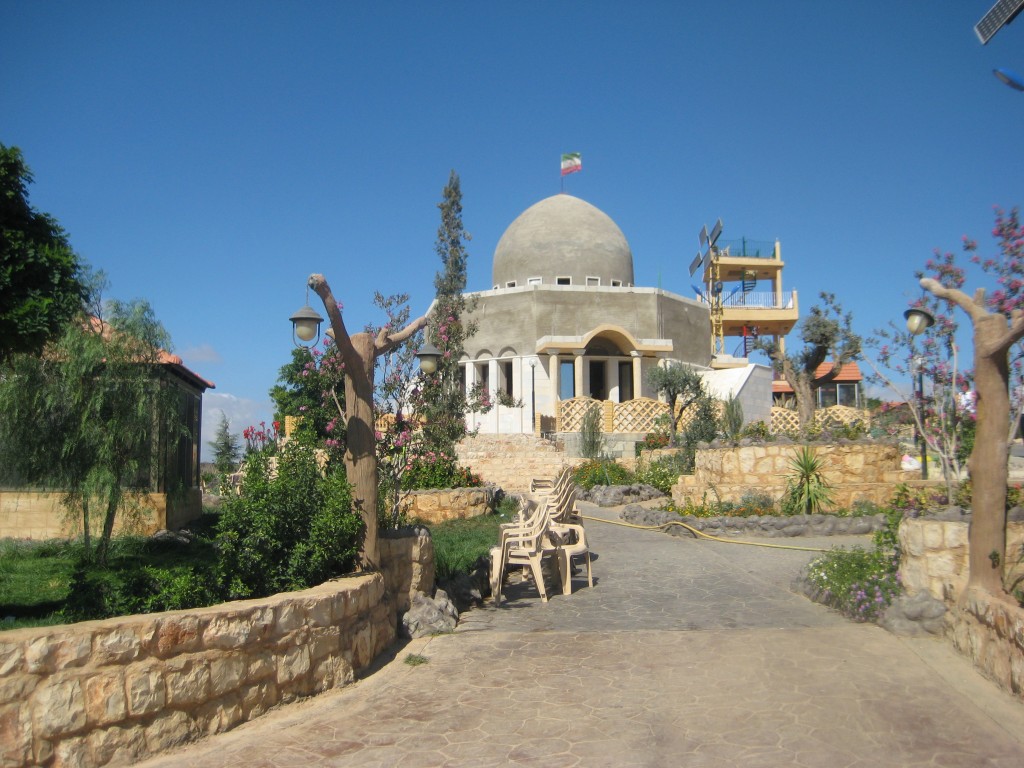Iran on Israel’s border
For as long as I’ve been covering this region, there have been some Israeli officials who describe Hezbollah as a crack division of the Iranian Revolutionary Guard and conclude that Iran has literally surrounded Israel.
In the war of rhetoric and symbols, Iran appears only too happy to oblige.
This weekend I visited “Iran Park” in Maroun Al Ras, the Lebanese border village where one of the first and nastiest engagements of the 2006 war was fought. Israeli ground troops got bogged down for days on the ridge at Maroun, and Hezbollah fighters consider it one of their finer engagements of the war.
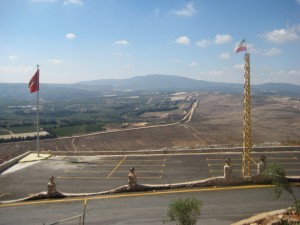 The Iranian government has funded and designed a lush park near the site of the battle, on the mountainside directly overlooking Israel. In the parking, visitors can stand at an observation point beside an Iranian flag fluttering in the wind, and look directly down at the Israeli hamlets of Avivim and Yir’on.
The Iranian government has funded and designed a lush park near the site of the battle, on the mountainside directly overlooking Israel. In the parking, visitors can stand at an observation point beside an Iranian flag fluttering in the wind, and look directly down at the Israeli hamlets of Avivim and Yir’on.
Through an arcade of ponsiana trees and an arch, past a commemorative plaque crediting President Mahmoud Ahmedinejad with gifting the park to the Lebanese, visitors find terraced playgrounds and picnic spots refreshed with the mountain breeze.
There’s soft-serve ice-cream trucks, grills, and replica of the Haram al-Sharif in Jerusalem – naturally, topped with an Iranian flag as well. Presumably, Israelis down in the valley can look up and see the Iranian flags and the replica Jerusalem mosque.
Along the path, detailed placards provided educational information about Iran – its population, its provinces, the neighborhoods of Tehran, and so on.
On Sunday mourning the park was already nearly full by 10 a.m. with families that had come to enjoy the cooler temperatures of Jabal Amal.
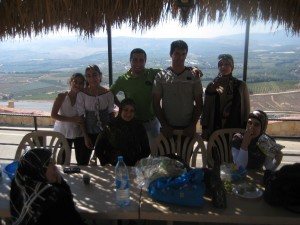
Three families from the humid coast had assembled under one of the palm-frond roof picnic stations, setting in for a long day grilling and eating.
“Coffee?” said Jihan Muselmani, 35.
“We come here for the clean air,” said Najua Khanafer, 52. “We thank all those who work for our land. Sayed Hassan, Iran, Qatar.”
“This will be the first place the Israelis destroy during the next war,” said Jihan.
“Even if they destroy it, we will build it up again,” said Rabab Haidar, 28.
“If you won’t have coffee, you must at least try these apples,” Jihan insisted, clutching a plastic tub of tiny green fruit. “They come from our own tree.”
Britain Reconsidering Hezbollah Channel?
 In a recent interview with Asharq Alawsat, the United Kingdom’s new Conservative Minister for the Middle East Alistair Burt said that Britain was reconsidering its policy of limited relations with Hezbollah. In 2008, after a three-year hiatus, the British Foreign Office quietly resumed its policy of allowing diplomats to talk to Hezbollah’s “political wing,” making a distinction between the organization’s political and military sides that Hezbollah itself does not.
In a recent interview with Asharq Alawsat, the United Kingdom’s new Conservative Minister for the Middle East Alistair Burt said that Britain was reconsidering its policy of limited relations with Hezbollah. In 2008, after a three-year hiatus, the British Foreign Office quietly resumed its policy of allowing diplomats to talk to Hezbollah’s “political wing,” making a distinction between the organization’s political and military sides that Hezbollah itself does not.
Burt didn’t say the U.K. would cut off the limited dialogue between its diplomats and Hezbollah’s elected members of parliament, but that the British government would review all future contacts:
It is still too early to say if we are going to adopt the approach of the previous government with regards to distinguishing between the political and military wings of Hezbollah. … There may be occasions where limited communication would be in everybody’s interests and the interests of the peace process in general. However we will place such communication under constant review, and on a case by case basis.
The British Labor government kept more open channels with Middle Eastern militants than the United States has, at times drawing rebukes from Washington. It will be interesting to see whether the new Conservative government continues the same approach.
Terrorist Talkers
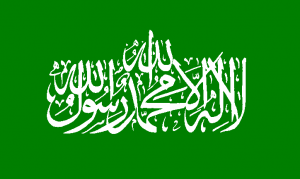 It’s a banner day for the topic I’ve been researching all spring : What tools beyond direct force can Western government use to engage, modulate or otherwise shape the behavior of listed terrorist groups? I’ve been studying in particular the use of intelligence community contacts, diplomacy, creative government engagement through aid and trade, and Track Two diplomacy (which we might as well call secret negotiations, since almost all of the important initiatives take place with the full knowledge of the governments involved).
It’s a banner day for the topic I’ve been researching all spring : What tools beyond direct force can Western government use to engage, modulate or otherwise shape the behavior of listed terrorist groups? I’ve been studying in particular the use of intelligence community contacts, diplomacy, creative government engagement through aid and trade, and Track Two diplomacy (which we might as well call secret negotiations, since almost all of the important initiatives take place with the full knowledge of the governments involved).
In the wake of last week’s Supreme Court ruling on the material support statute, which holds that political advice amounts to assistance for terrorist groups, several advocates of off-line diplomacy have reiterated their arguments for engagement.
First comes Mark Perry, author of the book Talking to Terrorists published earlier this year. He argues that the United States, Europe and Israel gain nothing by boycotting groups like Hamas and Hezbollah, because those groups are here to stay and represent large and growing constituencies. Perry broke the story in March that General David Petraeus had told the White House that America’s pro-Israel stance was harming core national interests in the Islamic world. Now, he’s gotten his hands on another CentCom document in which he reports that some military propose that Hamas should be integrated into the Palestinian Authority security forces and Hezbollah into the Lebanese Army. Both groups, the authors of the military memo argue, should receive American military training, even though they’re defined as foreign terrorist organizations by the U.S. government. (The officers were on a so-called “Red Team” tasked with challenging assumptions and considering alternative ideas.)
The CENTCOM team directly repudiates Israel’s publicly stated view — that the two movements [Hamas and Hezbollah] are incapable of change and must be confronted with force. The report says that “failing to recognize their separate grievances and objectives will result in continued failure in moderating their behavior.”
Meanwhile, on the op-ed page of The New York Times today, the academics Scott Atran and Robert Axelrod write that informal diplomacy has played a crucial role in convincing terrorist groups to renounce violence and enter politics. They cite historical Track Two negotiations begun by private citizens in the transformation of the Palestine Liberation Organization and the Real Irish Republican Army. They also cite their own back-channel conversations with Palestinian militant groups, including Hamas and Islamic Jihad, which they said have yielded important insights.
Private citizens can talk to leaders who are off limits to policy-makers, and can report their findings; in this instance, Atran and Axelrod write, Islamic Jihad reveals itself as recalcitrant and committed to fighting Israel, whereas a Hamas leader suggested he would consider not just a truce (hudna) but peace (salaam). Atran and Axelrod caution that off-line private diplomacy requires expertise and discretion: “Accuracy requires both skill in listening and exploring, some degree of cultural understanding and, wherever possible, the intellectual distance that scientific data and research afford.”
It’s an uncomfortable truth, but direct interaction with terrorist groups is sometimes indispensable. And even if it turns out that negotiation gets us nowhere with a particular group, talking and listening can help us to better understand why the group wants to fight us, so that we may better fight it. Congress should clarify its counterterrorism laws with an understanding that hindering all informed interaction with terrorist groups will harm both our national security and the prospects for peace in the world’s seemingly intractable conflicts.
Advocates of such talks usually take care not to oversell their potential, given that talking to terrorists rarely yields quick results and frequently yields none at all, except for political fallout when secret talks are leaked. All three of these authors have written publicly about their private conversations with leaders of listed terrorist groups. Their conversations were conceived as part of a concerted effort to convince the groups in question to renounce terrorism and violence and pursue their grievances in a legitimate political forum.
It’s unclear whether the Supreme Court ruling would affect these freelance diplomats, who tend to report their foreign terrorist contacts to the government and conduct their diplomatic experiments more or less with their government’s blessing. But for now American law – and grand strategy – have perhaps intentionally left in a fuzzily defined gray area the question of what kind of engagement best complements national counter-terrorism efforts.
Hezbollah’s Flotilla?
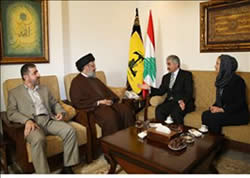 Is Hezbollah outfitting blockade-busters to send to Gaza? It appears not, despite some breathless innuendo put forth by an Israeli think tank with close ties to Israel’s intelligence community.
Is Hezbollah outfitting blockade-busters to send to Gaza? It appears not, despite some breathless innuendo put forth by an Israeli think tank with close ties to Israel’s intelligence community.
The Intelligence and Terrorism Information Center in Israel put out a report on June 22 entitled “The aid flotilla planned to set sail from Lebanon is supported by Syria and Hezbollah.” The detailed analysis compiles lots of details about the organizers of two Lebanese boats that plan to sail to Gaza in defiance of Israel’s blockade. One of the organizers, Yasser Qashlak, appears in a clip on Hezbollah’s Al-Manar television network spewing racism:
A day will come when the ships will carry the remainder of the European garbage which came to my homeland [i.e., Israel] and return them to their homelands.
When it comes to the money point so boldly proclaimed in the headline, the Intelligence and Terrorism Information Center quite reasonably concedes (albeit far down, in paragraphs 15 and 16 of a 17-paragraph report) that it found no evidence to substantiate the claim that Hezbollah and Syria are behind the Nagi al-Ali and the all-woman-crewed Maryam.
Hezbollah is careful not to publicly affiliate itself with the Lebanese flotilla, out of fear of complications with Israel. Another reason is the understanding that it will harm their ability to represent the flotilla as reflecting a human rights effort. In response to many articles in the media, Hezbollah issued an explicit denial of its involvement. … The organizers of the ships repeatedly state in interviews with the media that they have no connections with Hezbollah.
That didn’t stop the Israel Defense Forces from trumpeting the report on its news page with the headline “Report: Hezbollah and Syria are organizing the Lebanese flotilla.”
Meanwhile the Lebanese flotilla organizers are finishing the process of getting clearance from the Lebanese government, which wants to stay as far away as it can from provoking Israel. The ships won’t fly the Lebanese flag, and they will sail first to Cyprus and only then to Gaza.
Lebanon and Israel officially remain in a state of war after signing a ceasefire in 1948. While Hezbollah – which is doctrinally committed to the destruction of Israel – dominates Lebanese politics, the government officially is under the leadership of Western-allied Prime Minister Saad Hariri, although one-third of its cabinet members come from Hezbollah and its coalition partners.
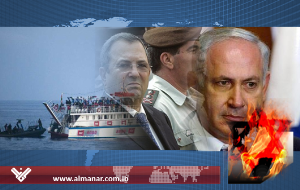 Hezbollah (like Hamas) has riled up its base about the Gaza blockade and the deaths of nine people aboard the Turkish ship that tried to bust it. The deadly episode on May 31 fit neatly into Hezbollah’s narratives about Islamic Resistance about “the Zionist entity.” Not least, Hezbollah cashed in rhetorically on the fact that religious Islamists fought Israeli commandos, thereby provoking a policy revision a few weeks later – the first relaxing of the blockade, and in the worldview of Hezbollah and Hamas, an achievement for Islamists on an issue on which secular Palestinians had failed to force any change.
Hezbollah (like Hamas) has riled up its base about the Gaza blockade and the deaths of nine people aboard the Turkish ship that tried to bust it. The deadly episode on May 31 fit neatly into Hezbollah’s narratives about Islamic Resistance about “the Zionist entity.” Not least, Hezbollah cashed in rhetorically on the fact that religious Islamists fought Israeli commandos, thereby provoking a policy revision a few weeks later – the first relaxing of the blockade, and in the worldview of Hezbollah and Hamas, an achievement for Islamists on an issue on which secular Palestinians had failed to force any change.
“Israel Preparing for Flotillas Like on Eve of War” screamed a June 23 headline on Al-Manar. (Hezbollah also threatened this week to sue the United States for libel, claiming that Washington and its Arab allies had spent $500 million “to bribe people to criticize Hezbollah.”)
Challenging the Gaza blockade is a popular unifying cause in Lebanon, appealing to nearly every constituency, even those who oppose Hezbollah. Defending Palestinian rights in Gaza also provides a welcome distraction for Lebanese politicians currently struggling with the matter of the second-class status of Palestinian refugees in Lebanon.
For Sayyed Hassan Nasrallah, Hezbollah’s supreme leader and a gifted orator, the affairs of the boats and the siege have created a ripe opportunity to make rhetorical hay, and – once again – to position Hezbollah as the beneficiary of an effort to which it contributed nothing tangible. (Not unlike Hamas, the main, and perhaps unintended, beneficiary of the last flotilla.)
From Nasrallah’s most recent speech (translation by Al-Manar):
This is a lesson for some of those who preach the policy of humiliation, delusion and wishful thinking that only result in disgrace. On the other hand a policy based on power can accomplish a lot. …
There is a good chance today to end the blockade imposed on Gaza and this requires more Freedom flotillas. … We have to benefit from the Freedom flotilla to remind the world of Israel’s massacres
Hezbollah’s New Museum
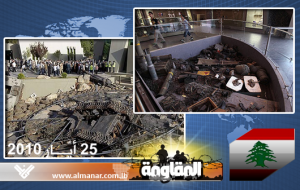 Lebanon’s Party of God opened a museum last month in the village of Mlita. I haven’t visited it yet, but I’ve seen lots of Hezbollah’s temporary annual exhibitions, which are similar but on a smaller scale. The Mlita Museum appears to raise Hezbollah’s culture (or cult) of resistance and martyrdom yet another level.
Lebanon’s Party of God opened a museum last month in the village of Mlita. I haven’t visited it yet, but I’ve seen lots of Hezbollah’s temporary annual exhibitions, which are similar but on a smaller scale. The Mlita Museum appears to raise Hezbollah’s culture (or cult) of resistance and martyrdom yet another level.
Don Duncan has just posted an excellent short video on The Wall Street Journal’s website. The four-minute clip seems to give a good sense of the Mlita museum, which opened on May 23, on the tenth anniversary of Israel’s withdrawal from the zone it occupied in southern Lebanon.
From inside a 600-foot-long tunnel, visitors can peer through glass at some of Hezbollah’s former underground hideouts. The fortifications were closely guarded secrets until recently, and key to some of Hezbollah’s recent operations, including its fight with Israel in a brief 2006 war along the southern border.
To manage the new museum and other planned sites, Hezbollah is creating its own museum department, adding to its other divisions, which include radio and TV stations.
“It shows that the resistance is more stable,” said Muhammad Kawtharani, director of Hezbollah’s arts foundation and a spokesman for the Mlita museum project. “You’re seeing a secret that is a secret no more.”
The sprawling permanent museum appears to mark another step on Hezbollah’s march to institutionalize its “Society of Islamic Resistance.” Hezbollah’s resourceful approach to guerilla warfare and propaganda have allowed it to nimbly adapt to changing circumstances, but as its power and reach have expanded, so too has its tendency to create static state-like structures.
The Los Angeles Times had a piece in May when the museum first opened, and Hezbollah put up a piece on Al Manar’s website extolling the Mlita complex. Al Manar’s language captures the flavor of Hezbollah public relations and propaganda:
“Mlita is full of sacrifices and memories that led to the achievement of the final victory,” Adnan Ibrahim Sammour, one of the engineers in charge of the project, told Al Manar … “This is the new Middle East, the real new Middle East that we have always dreamt of.” …
Mlita is a first step in the long struggle of writing down the Resistance’s history, a shining history that cannot be summarized with words, pictures, or even experiences…
Publisher’s Summary
 A PRIVILEGE TO DIE: Inside Hezbollah’s Legions and Their Endless War Against Israel.
A PRIVILEGE TO DIE: Inside Hezbollah’s Legions and Their Endless War Against Israel.
In the tradition of Thomas Friedman’s From Beirut to Jerusalem, journalist Thanassis Cambanis explains why Hezbollah has emerged as the premier threat to both Israel and the West.
How has Hezbollah, which has now won two wars with Israel, managed to become the most powerful movement in the Islamic world, why has it gained millions of followers, and what do they want? Part standing army, part political party, and part theological movement, Hezbollah has created a revolution in the Middle East and is uncompromising in its intentions to remake the map of the Middle East and destroy Israel. Veteran Middle East correspondent Thanassis Cambanis offers the first detailed look at the surprising cross section of people who are willing to die for this movement: not just unemployed young men, but middle-class engineers, merchants, even nurses. While Hamas and al Qaeda are certainly dangerous to Israel and the West, it is Hezbollah’s millions of foot soldiers—who span economic class and religious sect—sworn to the group’s apocalyptic beliefs that have made it the premier force in the Middle East. Through vivid portraits of the men and women who do Hezbollah’s grassroots work—on the battlefields, in politics, in nightclubs, and with scout troops—Cambanis introduces us to the “soccer moms” of Hezbollah, the rank-and-file devotees steeped in a fiery new brand of Islam and puts a human face on the movement that has ushered in a militant renaissance and inspired fighters in Gaza, the West Bank, Egypt, Iraq, and beyond. A Privilege to Die is an urgent and important exploration of militancy in the Middle East.
EARLY REVIEWS
“Brilliant and revealing. It positively frightened me. Cambanis tells an important story with emotional power.”
–Leslie H. Gelb, President Emeritus of the Council on Foreign Relations
“A Privilege To Die is a revelation. Thanassis Cambanis, one of the most talented foreign correspondents of his generation, has traveled far into the heart of Hezbollah and what he has found there needs to be read about and studied by general readers and policy-makers alike. His reporting is not only fearless but sophisticated and penetrating, providing us with a vibrant image and unprecedented understanding of this powerful and secretive Islamist force. A Privilege To Die will become required reading for anyone who hopes to understand Lebanon and the modern Middle East.”
— Matthew McAllester, Pulitzer Prize-winning author of Bittersweet: Lessons from my Mother’s Kitchenand Blinded by the Sunlight: Surviving Abu Ghraib and Saddam’s Iraq.
“A gripping, street-level view of Hezbollah. Cambanis brings Hezbollah out of the shadows to show how it has become the world’s most sophisticated resistance group.”
— Richard Engel, Chief Foreign Correspondent, NBC News, author of War Journal and A Fist in the Hornet’s Nest.
“No global flashpoint today is more important than the Hezbollah-Israel conflict, and no book I know does a better job than A Privilege to Die in getting inside the thought-world of Hezbollah’s followers. From the front-lines of southern Lebanon, Cambanis brings us the human voices of fighters whom he gets to know even before they become martyrs for the cause. Their stories show the importance of faith and belief in making sense of violence. Nuanced, textured, and brutally honest, the book should be required reading for anyone who cares about war and peace in the Middle East.”
— Noah Feldman, Harvard Law School, author of Scorpions: The Battles and Triumphs of FDR’s Great Supreme Court Justices and The Fall and Rise of the Islamic State
“Illuminating and terrifying in equal measure. Thanassis Cambanis journeyed to the heartland of the most important, least understood armed actor in the Middle East. The souls he met along the way are rendered with compassion but not spared the same unflinching lens that Cambanis turns on his own biases. This will be a controversial book, and an important one.”
— Quil Lawrence, National Public Radio Kabul Bureau Chief, author of Invisible Nation: How the Kurds’ Quest for Statehood Is Shaping Iraq and the Middle East
“A refreshing and insightful journey into a one of the most complex dynamics in the modern Middle East. Thanassis Cambanis combines extraordinary reportage with sharp analysis and a clear voice to explore the many sides of Hezbollah, from militant group to political party and charity organization. A series of highly evocative portraits of the people who make up the core supporters of Hezbollah makes A Privilege to Die a must read for anyone who seeks a better understanding of the region and its people.”
— Farnaz Fassihi, The Wall Street Journal, Author of Waiting for an Ordinary Day
PUBLICATION INFORMATION
A Privilege to Die
September 2010
Free Press
Political Science
6 x 9, 304 pages
ISBN: 978-1-4391-4360-5
$27.00 / $34.99 in Canada
Book Coming
Free Press has settled on a title for my forthcoming book. It’ll be called A Privilege to Die: Inside Hezbollah’s Legions and Their Endless War Against Israel. It should be in bookstores this fall.
